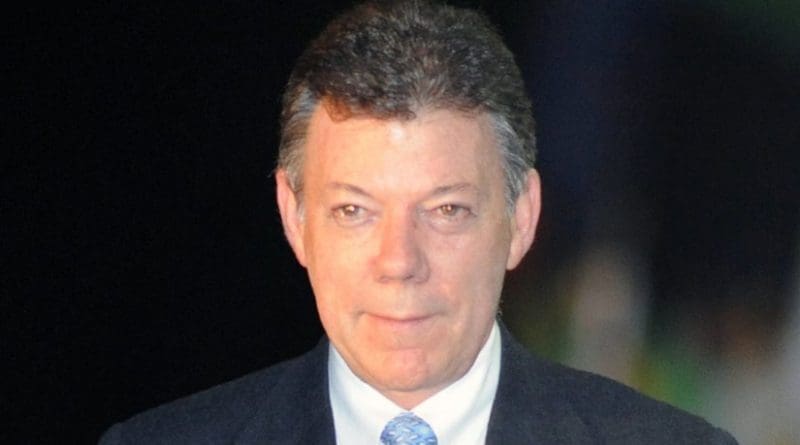Colombia: Still No Signed Peace Agreement
March 23 came and went, and the government of President Juan Manuel Santos and the Revolutionary Armed Forces of Colombia (FARC) have not yet signed the peace agreement that would end more than half a century of armed conflict. The date was announced last Sep. 23 in Havana, Cuba, in a joint press conference with Santos and the leader of the FARC, Rodrigo Londoño.
The government’s chief negotiator, Humberto de la Calle, said that “it was not possible to” sign the final agreement with the FARC on the agreed upon date. “There are important differences with the FARC on substantive issues,” De la Calle said.
According to De la Calle, the Colombian government does not accept the FARC’s proposal of a disarmament “process.” The government instead proposes that, once the final agreement is signed, the FARC must lay down their arms before implementing the agreed upon policies concerning transitional justice and political participation. The FARC also argue for the suspension of all warrants and to store weapons as collateral to ensure the government will honor the agreement.
At a news conference in Havana on Mar. 23, the FARC’s spokesman, the guerrilla commander Jorge Torres Victoria, known as Pablo Catatumbo, said that “there is no signature on this date because we have not come to an agreement.”
“The challenges we are facing are difficult. We have not yet reached agreement on issues that are vital to the end of the conflict,” he said.”We are dealing with such serious issues, especially with the exacerbation of paramilitarism. In the last month, there have been more than 28 assassinations of popular leaders, human rights defenders, peasants, farmers, and these assassinations have gone unpunished. It is very worrisome. “
In its annual report on Colombia, released on Mar. 22, the UN Office of the High Commissioner for Human Rights warned that “various local interest groups and groups opposed to changes promoted through the peace process are already using violence and intimidation to protect their interests, without a sufficiently effective state response.”
Issues of disagreement
Another of the outstanding issues is regarding the concentration zones: the places where the guerrillas will be located once the agreement is signed. The government believes that these places should be few and far from populated areas and borders, while the FARC demands more space and not to be isolated from the civilian population.
On Mar. 9, the Senate approved an amendment to the Public Order Act (1997) which grants the president special powers to establish the concentration zones where the disarmament and demobilization of the FARC will take place once the final agreement is signed. The amendment allows the parties to determine the conditions and their commitments regarding the timing and operation of the aforementioned zones, ensures the safety of the disarmament process, calls for the suspension of arrest warrants of FARC members who lay down their arms, and establishes national and international monitoring and verification mechanisms of disarmament, registration, control, destruction or disposal of weapons handed over by the guerrillas.
The amendment also includes a paragraph inserted by Senator and former president Alvaro Uribe (2002—2010) stating that the concentration zones will be located in isolated areas where there is no civilian population.
According to Torres Victoria, asking the FARC to concentrate in inaccessible places “is frankly absurd,” but it’s also not about asking to stay in densely populated places, he admitted.
On March 28, President Santos explained that there are three reasons why the government did not sign the peace agreement.
“First, the government demands that the FARC must have laid down their arms and have taken the step toward legality, to be part of the political process and to circulate within the national territory. As I have said from day one, the link between politics and weapons must end forever in Colombia. Second: The Government demands a fixed, accurate and clear date to end the disarmament process. For no reason that date can be left open. Third: The government cannot allow any Colombian — in any zone agreed for disarmament — to be left unprotected. Colombians do not accept — and neither does their government — an agreement that says otherwise,” he said.
“If we want to reach that stable and lasting peace we have sought for so long — and we are close—, we must continue with a steady hand, a fixed path, and acting with full responsibility,” the president said. “Insisting, persevering, we will find reasonable solutions to these problems, solutions that suit all Colombians.”

